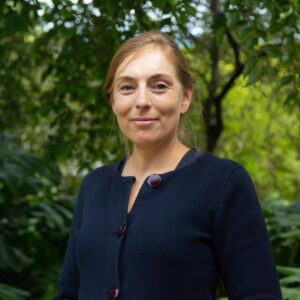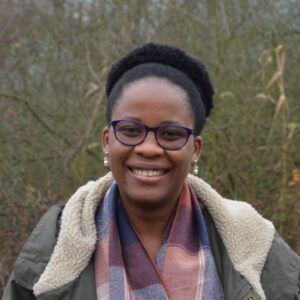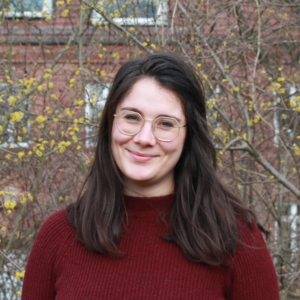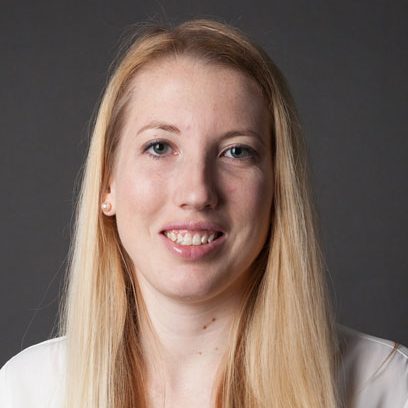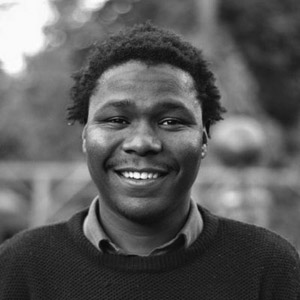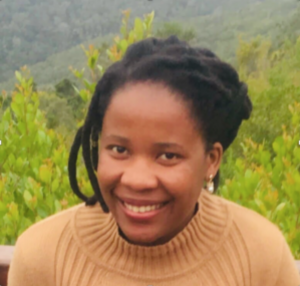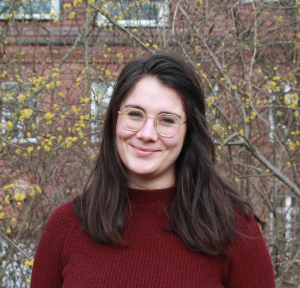Programme Office
PECS activities are supported by the PECS International Programme Office (PECS-IPO). From 2019 PECS has adopted a nodal and regional coordination structure. The current central node of the regionally distributed Secretariat is hosted by the CST at Stellenbosch University.
The PECS-IPO is in charge of implementing the vision and recommendations of the PECS-SC. The IPO is responsible for engaging the international community, establishing networks and coordinating activities. It also communicates the results of PECS activities through reports, the PECS website and publications.
Programme Office
Megan Meacham
Researcher
Email: megan.meacham@su.se
Stockholm Resilience Centre, Stockholm University, Sweden
Profile
Megan Meacham is a PhD student working with Garry Peterson and Albert Norström, studying the social-ecological process that provides for the reliable production ecosystem services in the Norrström basin in Sweden. In particular she is focusing on the production and maintenance of sets of services generated in this heterogeneous landscape.
Her work is part of the project on social-ecological dynamics of ecosystem services in the Norrström basin (SEEN) as well as a regional case study in the Program on Ecosystem Change and Society (PECS).
After completing her MSc in Ecosystems, Governance and Globalization at the Stockholm Resilience Centre, Megan has worked with the economic evaluation of policy decisions as well as the ecosystem service concept within the agricultural context. This has led to an interest in further exploring the ecosystem service concept, working to expedite the ecosystem service assessment process, and advancing the understanding of the social-ecological dynamics that determine and maintain specific sets of ecosystem services.
Projects
Relevant Links and Info
Programme Office
Odirilwe Selomane
Director
Email: odirilwes@sun.ac.za
Centre for Complex Systems in Transition, Stellenbosch University
Profile
Dr Odirilwe Selomane is a researcher at Stellenbosch University based at the Centre for Complex Systems in Transition. His research focuses on using primarily existing data to measure, quantify and monitor social-ecological systems and dynamics within them. He is interested in understanding how societies benefits from using ecosystems, how this changes overtime, and how to better account for blind spots in monitoring these changes. He is currently also starting to explore how faraway places could have impacts on local conditions through processes such as trade – using the telecoupling framework. He currently co-leads the South African component of an 18 country project as part of the Food, Agriculture, Biodiversity, Land-Use, and Energy (FABLE) consortium. The projects aims to understand how countries can transition towards sustainable land-use and food systems.
He was recently involved in the Global Assessment of the Intergovernmental Science-Policy Platform on Biodiversity and Ecosystem Services (IPBES) as a fellow, and was a contributing author in the Global Environmental Outlook 6 report (GEO-6). He is a co-coordinator of the Ecosystem Services Working Group of Group on Earth Observation Biodiversity Observation Network (GEOBON), is a committee member of the Ecosystem Services Partnership (ESP), and a member of the Balaton Group as a Donella Meadows Fellow.
Projects
Relevant Links and Info
Programme Office
Amanda Manyanı
Office Liaison
Email: amy.t.manyani@gmail.com
Centre for Complex Systems in Transition, Stellenbosch University
Amanda Manyani is a PhD candidate in Sustainable Development, Planning and Management based at the Centre for Complex Systems in Transition at Stellenbosch University. Her interest focuses on understanding the development, emergence and institutionalization of social-ecological systems research. She is also interested in finding out how complexity theory has influenced the development of the study and the implications for future development of the study. Amanda is part of the Southern African Program on Ecosystem Change and Society (SAPECS) under the students working group exploring the interface of understanding the dynamics between the natural and social sciences.
Programme Office
Johanna Hofmann
Office Liason
Email: johanna.hofmann@stud.leuphana.de
Leuphana University, Lueneburg
Profile
Johanna Hofmann is a student at Leuphana University in Lueneburg. She is currently studying sustainability science in the Leuphana Master’s Programme. Her Bachelor’s degree is in Cultural Science (major) and Sustainability Science (minor). Through her studies in Cultural Science and an earlier apprenticeship in the hotel industry she consummated a lateral entry, but also developed an transdisciplinary perspective on the subject of ecosystems and society, in which she engaged within the project-based Minor. In her Bachelor thesis, she brought together these subjects with Donella Meadow’s theory on leverage points. She will deepen the knowledge of these concepts in her master.
Johanna worked at the Faculty of Sustainability at Leuphana tutoring a course in Ecological Restoration and helped organising the last PECS workshop in December 2019.

